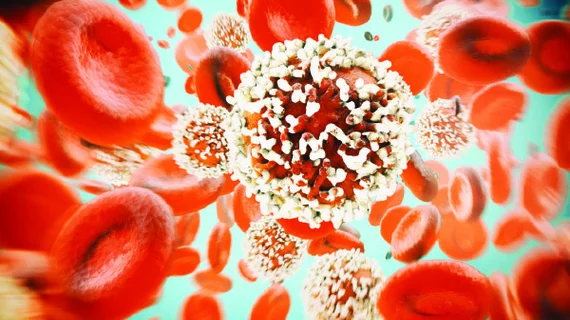New MRI contrast agent detects cancers before they spread to the brain
A team of German-led researchers has developed a new imaging contrast agent that can detect certain cancers before they metastasize in the brain.
Leif Schroeder, with Leibniz-Forschungsinstitut fuer Molekulare Pharmakologie in Germany, and colleagues designed their new material so that magnetic resonance imaging could detect small, abnormal tissue changes indicative of cancer. Their agent is 16,000-times more efficient than some fluorine contrast-based alternatives, the authors wrote.
"The new contrast agent could be used for the safe and minimally invasive detection of early-stage cerebral metastases,” Schroeder and colleagues said in a statement. “This could have significant advantages, particularly in the diagnosis of breast cancer, because dangerous tumors can be detected much earlier, improving therapy outcomes.”
After working on the project for years, the German-led team finally landed on a structure that is temporarily filled with xenon. These molecules, shaped like a “hollow soccer ball,” allow the researchers to visualize the development of new small blood vessels in early tissue changes. This is important, they said, because as metastasis begins, certain brain regions produce new capillaries that are necessary to feed tumor tissue.
It’s a process that traditional imaging is not sensitive enough to observe.
"For this, we need a contrast agent that considerably increases the sensitivity of MRI by greatly improving the contrast structure, and that is only needed in tiny amounts,” Schroeder and colleagues noted.
Going forward, the group says it wants to use xenon-based contrast agents for additional medical functions.

